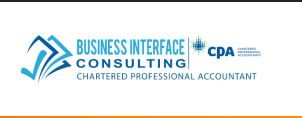Tax Season Preparation Tips: A Guide for Winnipeggers
BF
Understanding the Tax Season Timeline
As tax season approaches, many Winnipeggers find themselves scrambling to gather documents and figure out deadlines. Understanding the timeline is crucial for a stress-free experience. In Canada, the deadline to file your taxes is typically April 30th. However, if this date falls on a weekend, it may be extended to the next business day. For self-employed individuals, the deadline is June 15th, though any taxes owed must be paid by April 30th.

Gathering Essential Documents
To efficiently prepare for tax season, start by gathering all necessary documents. This includes T-slips such as T4s from employers, T5s for investment income, and any other relevant income statements. Don't forget to collect receipts and records for deductions and credits you plan to claim. Keeping these documents organized in a folder or a digital file can save you significant time and hassle.
Consider creating a checklist to ensure you have everything you need. Here's a basic list to get started:
- T4 slips (employment income)
- T5 slips (investment income)
- Receipts for medical expenses, donations, and education
- RRSP contribution receipts
Leveraging Tax Software
Using tax software can simplify the filing process significantly. These programs guide you through each step, ensuring you don't miss any crucial information. Many software options are available, ranging from free to premium versions. Choose one that suits your needs and budget. Most software can auto-fill forms using your CRA account, saving you time and reducing errors.

Moreover, tax software often updates automatically with the latest tax rules and regulations, ensuring compliance with federal and provincial laws. This can be particularly beneficial if you're unfamiliar with recent changes or complex tax situations.
Seeking Professional Help
If your financial situation is complicated or if you prefer not to handle taxes alone, consider hiring a professional accountant or tax advisor. They can provide personalized advice and ensure you're maximizing your deductions while staying compliant with the law. While this service comes at a cost, it can often pay for itself through savings on your tax bill.

Preparing for Next Year
After filing your taxes, it's wise to start preparing for the next year. Keep track of your income and expenses throughout the year to make next year's tax season even smoother. Consider setting up a system to organize your documents as they come in, whether through a dedicated folder or a digital app.
Additionally, review your past return to understand what worked well and what could be improved. This reflection can help you make strategic financial decisions in the upcoming year.
Conclusion
By understanding the timeline, gathering essential documents, leveraging technology, and seeking professional help when necessary, Winnipeggers can navigate tax season with confidence. Remember, preparation is key, and taking these steps can lead to successful and stress-free tax filing.
